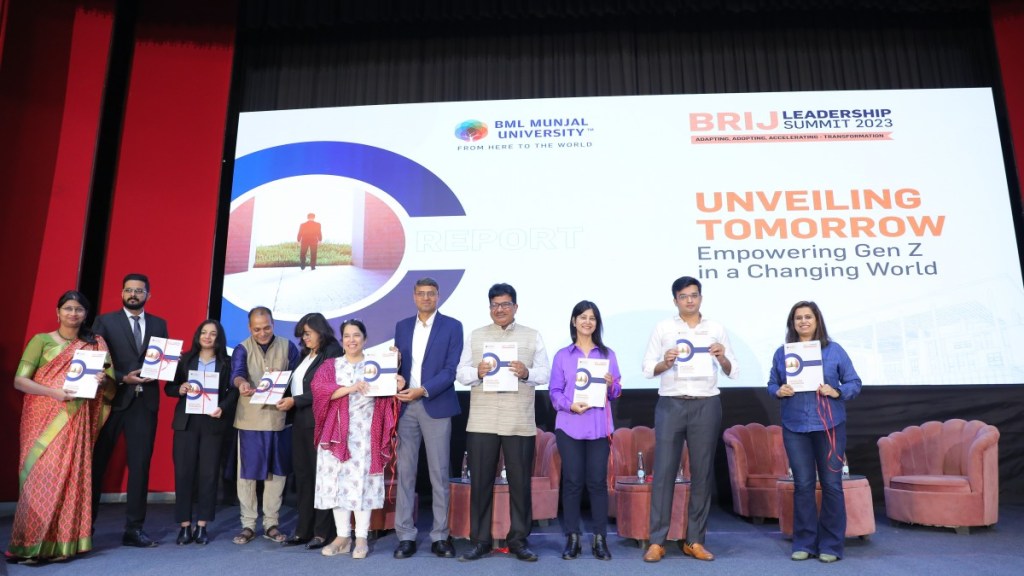Around 65% of Gen Z believes AI will significantly impact various aspects of human life. While 44% of Gen Z believes the job market is uncertain and around 28% ethical dilemmas are major challenges posed by AI. And 48% of Gen Z expressed substantial concern about the issue of climate change, revealed the recent survey conducted by the BML Munjal University.
The report, ‘Unveiling Tomorrow: Empowering Gen Z in a Changing World’ captures significant insights into Gen Z’s attitudes and concerns regarding technology, climate change, education, wellness and sustainability.
Ethical considerations and privacy issues also weigh on the minds of 28.7% of participants. Most notably, a substantial 62.8% of Gen Z respondents express genuine worry about AI potentially disrupting traditional job roles and employment stability, underlining the importance of educational reforms and AI-related courses to prepare them for the changing job landscape, as highlighted in the survey report.
On the other hand, the fear of AI leading to substantial workforce disruptions and subsequent unemployment is a significant issue, indicating the need for comprehensive strategies to address and mitigate these concerns. This anxiety underscores the critical call for educational reforms, particularly the integration of more AI-related courses and programs, as highlighted by 47.4% of respondents.
There’s a palpable fear among Gen Z about AI displacing traditional jobs, highlighting the need for proactive strategies, including comprehensive education reforms, mentorship, and balancing tech advancement with job preservation. Data privacy and ethical tech use are also vital for a responsible tech-driven society.
Gen Z and Climate Change:
In an interesting finding around climate change, the survey highlights that approximately 50% of respondents are significantly concerned about this pressing issue, with 33% expressing moderate concern and a minority showing no apprehension. Effective climate change measures endorsed by respondents include transitioning to renewable energy sources, stricter emissions regulations, investment in sustainable infrastructure and transportation, sustainable agriculture promotion, and climate change awareness. Furthermore, a remarkable 40.2% of Gen Z individuals are willing to actively support environmentally sustainable companies, indicating a growing awareness and commitment to addressing climate change and sustainability.

